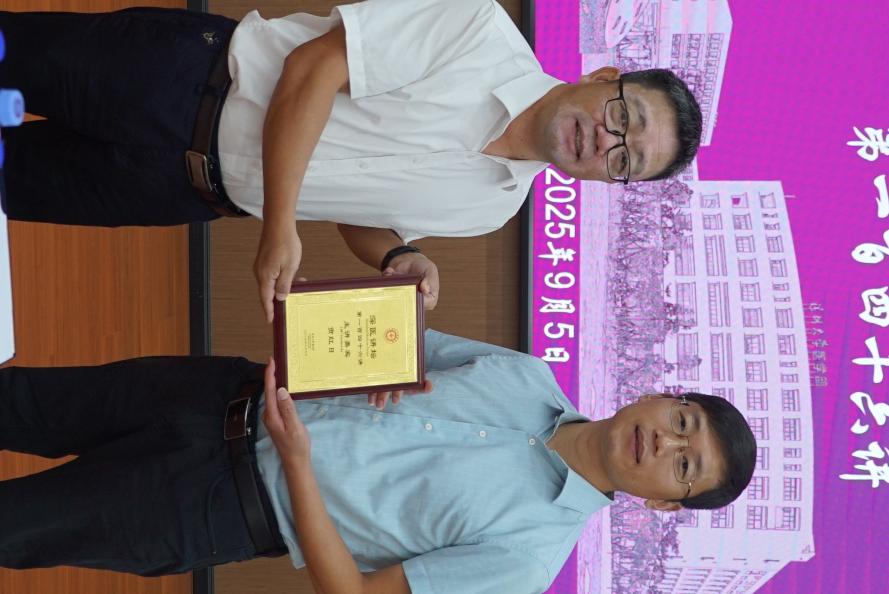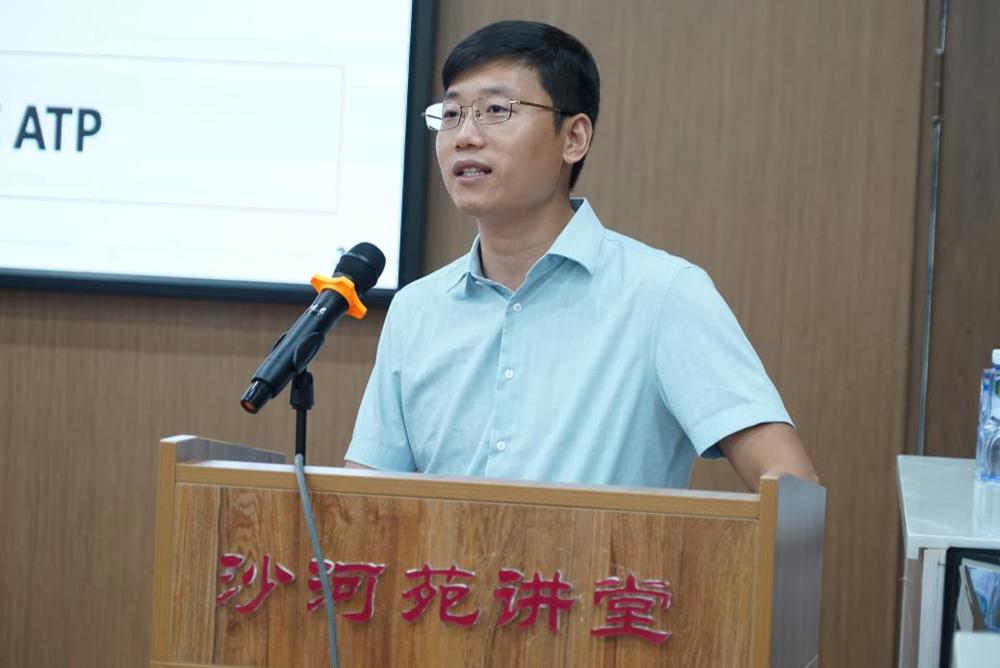Shenzhen University Medicine Forum:Oxidative Phosphorylation System: From Molecular Mechanism to Drug Development
On the morning of September 5, 2025, Professor Chen Xinchun of the School of Basic Medical Sciences invited Professor Gong Hongri—Director of the Tianjin Key Laboratory of Protein Science and Chairman of the Tianjin Society of Biochemistry and Molecular Biology—from Nankai University’s School of Life Sciences to deliver the 146th lecture of the Shenzhen University Medicine Forum, “Oxidative Phosphorylation System: From Molecular Mechanism to Drug Development,” in A7 Shahe Yuan on Shenzhen University’s Lihu Campus.
ATP is the universal energy carrier in cells, and energy metabolism underpins all life processes. Professor Gong began by showing how mitochondrial integrity dictates cell fate in a Drosophila model through comparative locomotion assays. He then contrasted conventional tuberculosis (TB) therapy, characterized by long treatment courses and sub-50% cure rates for drug-resistant strains, with the advent of bedaquiline. By targeting the oxidative phosphorylation system of Mycobacterium TB, bedaquiline significantly improves treatment efficacy and shortens therapy duration, spurring further research into the bacterium’s bioenergetics. Professor Gong’s team has since reported several key advances:
1. Characterizing bedaquiline’s mechanism of action, guiding optimization, and developing novel analogues.
2. Uncovering the catalytic mechanism of the terminal oxidase and elucidating how Q203 exerts its effect, informing next-generation drug design.
3. Demonstrating the feasibility of succinate dehydrogenase as a drug target, laying groundwork for new inhibitors.
Building on the Nobel-recognized work on ATP synthase, the group purified human ATP synthase, solved its three-dimensional structure for selective targeting, and discovered a supercomplex between superoxide dismutase and the Mycobacterium TB terminal oxidase Cyt bcc/aa₃, suggesting a coupled electron-transfer and radical-scavenging mechanism. They also developed the first Cyt bd inhibitor and extended their findings to agriculture by designing succinate dehydrogenase inhibitors—dubbed the “dark horses of the pesticide field”—with the B10 compound emerging as a promising next-generation SDHI.
From insect models to novel TB therapies and crop-protectant candidates, these studies illuminate Mycobacterium TB energy metabolism and demonstrate the seamless translation of basic research into therapeutic and agricultural applications.
Professor Hongri Gong is a professor in the School of Life Sciences at Nankai University, where he leads research on the oxidative phosphorylation system. His work is funded by the National Excellent Youth Science Foundation, the National Key R&D Program for Young Scientists, the Ministry of Education’s U40 Program, and the Youth Science Foundation Program (formerly the National Outstanding Young Scientist Program). He has published as first or corresponding author in Nature, Science, Molecular Cell, Nature Communications, PNAS, and eLife. Professor Gong directs the Tianjin Key Laboratory of Protein Science, chairs the Tianjin Society of Biochemistry and Molecular Biology, and serves as a reviewer for journals such as Nature Chemical Biology and PNAS. He is also an expert evaluator for the National Natural Science Foundation of China and the National Key R&D Program of China.










用户登录
还没有账号?
立即注册